BMW 7 Series vs Hyundai IONIQ 9 – Differences & prices compared
Compare performance, boot space, consumption and price in one view.
Find out now: which car is the better choice for you – BMW 7 Series or Hyundai IONIQ 9?
The BMW 7 Series (Sedan) comes with a Plugin Hybrid or Diesel MHEV engine and Automatic transmission. In comparison, the Hyundai IONIQ 9 (SUV) features a Electric engine with Automatic transmission.
When it comes to boot capacity, the BMW 7 Series offers 540 L, while the Hyundai IONIQ 9 provides 338 L – depending on how much space you need. If you’re looking for more power, decide whether the 571 HP of the BMW 7 Series or the 428 HP of the Hyundai IONIQ 9 suits your needs better.
In terms of consumption, the values are 1 L per 100 km for the BMW 7 Series, and 19.90 kWh for the Hyundai IONIQ 9.
Price-wise, the BMW 7 Series starts at 101300 £, while the Hyundai IONIQ 9 is available from 58700 £. Compare all the details and find out which model fits your lifestyle best!
BMW 7 Series
The BMW 7 Series represents the pinnacle of luxury and performance in the executive car segment, offering an unparalleled driving experience. Its elegant design combines aesthetic appeal with advanced technology, ensuring both comfort and connectivity for its passengers. With cutting-edge driver assistance systems, this flagship model showcases the brand's commitment to innovation and safety.
details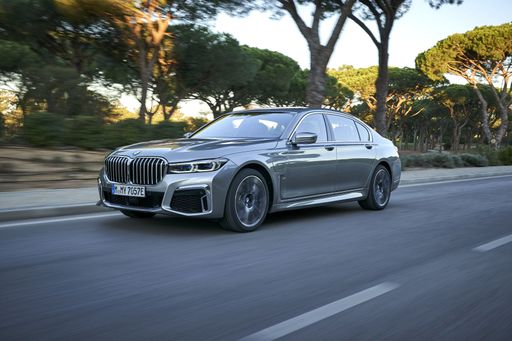 @ press.bmwgroup.com
@ press.bmwgroup.com
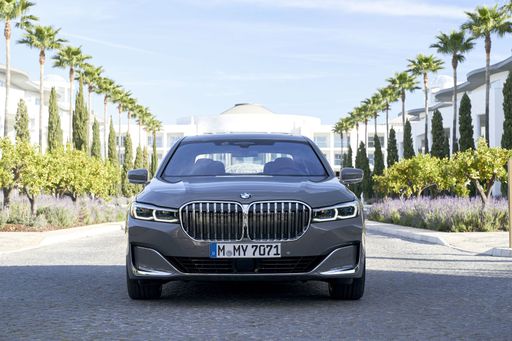 @ press.bmwgroup.com
@ press.bmwgroup.com
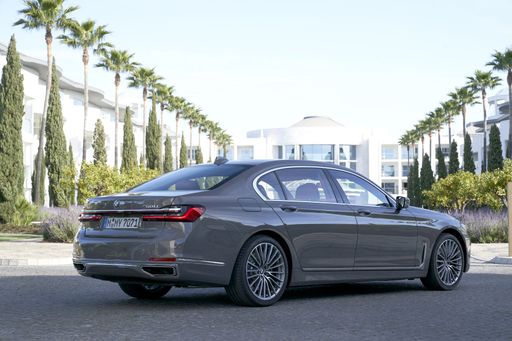 @ press.bmwgroup.com
@ press.bmwgroup.com
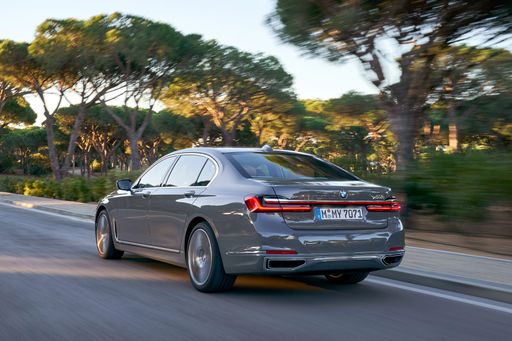 @ press.bmwgroup.com
@ press.bmwgroup.com
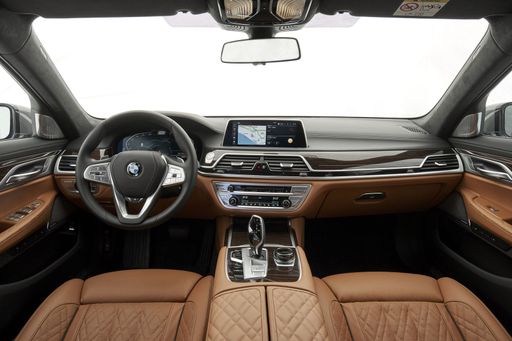 @ press.bmwgroup.com
@ press.bmwgroup.com
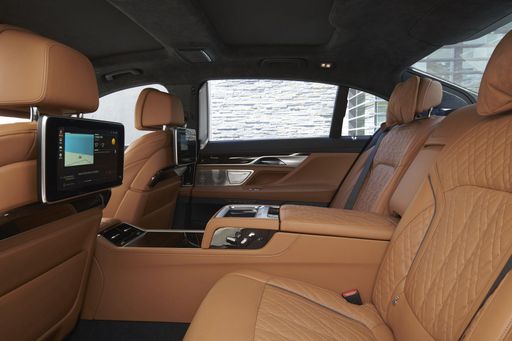 @ press.bmwgroup.com
@ press.bmwgroup.com
Hyundai IONIQ 9
The Hyundai IONIQ 9 is a bold step forward in the automotive world, combining cutting-edge electric technology with a sleek and modern design. This model stands out with its spacious interior and advanced features, ensuring both comfort and convenience for drivers and passengers alike. As Hyundai pushes the envelope in eco-friendly innovation, the IONIQ 9 represents the future of sustainable driving with its impressive range and performance capabilities.
details

|
|
|
|
|
Costs and Consumption |
|
|---|---|
|
Price
101300 - 127300 £
|
Price
58700 - 74400 £
|
|
Consumption L/100km
1 - 6.1 L
|
Consumption L/100km
-
|
|
Consumption kWh/100km
-
|
Consumption kWh/100km
19.9 - 20.6 kWh
|
|
Electric Range
80 km
|
Electric Range
600 - 620 km
|
|
Battery Capacity
17.60 kWh
|
Battery Capacity
110 kWh
|
|
co2
23 - 160 g/km
|
co2
0 g/km
|
|
Fuel tank capacity
65 - 74 L
|
Fuel tank capacity
-
|
Dimensions and Body |
|
|---|---|
|
Body Type
Sedan
|
Body Type
SUV
|
|
Seats
5
|
Seats
7
|
|
Doors
4
|
Doors
5
|
|
Curb weight
2255 - 2525 kg
|
Curb weight
2594 - 2689 kg
|
|
Trunk capacity
525 - 540 L
|
Trunk capacity
338 L
|
|
Length
5391 mm
|
Length
5060 mm
|
|
Width
1950 mm
|
Width
1980 mm
|
|
Height
1544 mm
|
Height
1790 mm
|
|
Payload
605 - 665 kg
|
Payload
586 - 643 kg
|
Engine and Performance |
|
|---|---|
|
Engine Type
Plugin Hybrid, Diesel MHEV
|
Engine Type
Electric
|
|
Transmission
Automatic
|
Transmission
Automatic
|
|
Transmission Detail
Automatic Gearbox
|
Transmission Detail
Reduction Gearbox
|
|
Drive Type
All-Wheel Drive
|
Drive Type
Rear-Wheel Drive, All-Wheel Drive
|
|
Power HP
300 - 571 HP
|
Power HP
218 - 428 HP
|
|
Acceleration 0-100km/h
4.3 - 5.8 s
|
Acceleration 0-100km/h
5.2 - 9.4 s
|
|
Max Speed
250 km/h
|
Max Speed
190 - 200 km/h
|
|
Torque
670 - 800 Nm
|
Torque
350 - 700 Nm
|
|
Number of Cylinders
6
|
Number of Cylinders
-
|
|
Power kW
220 - 420 kW
|
Power kW
160 - 315 kW
|
|
Engine capacity
2993 - 2998 cm3
|
Engine capacity
-
|
General |
|
|---|---|
|
Model Year
2023 - 2024
|
Model Year
2025
|
|
CO2 Efficiency Class
B, F
|
CO2 Efficiency Class
A
|
|
Brand
BMW
|
Brand
Hyundai
|
BMW 7 Series
Introduction to the BMW 7 Series
The BMW 7 Series has long been synonymous with luxury, performance, and cutting-edge technology. The latest versions continue this tradition, integrating sophisticated hybrid technology with distinguished design and powerful performance. Whether cruising the motorway or navigating urban landscapes, the BMW 7 Series offers an exceptional driving experience.
Technical Specifications
The 2023 BMW 7 Series boasts a range of impressive specifications and features. The engine options, which include both diesel mild-hybrid and plug-in hybrid variants, provide flexibility for different driving needs. With power outputs ranging from 300 PS to a remarkable 571 PS, the 7 Series does not compromise on performance. Coupled with intelligent all-wheel drive and an automatic transmission, it assures smooth and responsive handling.
Fuel efficiency is another highlight, with the series achieving consumption figures as low as 1.1 L/100km for the plug-in hybrid models, showcasing the brand's commitment to sustainability without sacrificing performance.
Advanced Hybrid Technology
The integration of mild-hybrid and plug-in hybrid systems into the 7 Series marks a significant advancement in BMW's pursuit of greener motoring. The plug-in hybrid variants, with a battery capacity of 18.7 kWh, offer an all-electric range of up to 79 km - ideal for city driving. This hybrid setup not only reduces emissions but also enhances acceleration, delivering a swift 0-100 km/h time ranging from 4.3 to 5.8 seconds.
Luxury and Comfort
The BMW 7 Series epitomises luxury, featuring an interior designed for comfort and convenience. Standard equipment includes high-grade materials, advanced connectivity, and cutting-edge infotainment systems. The cabin is spacious, with ample room for five passengers and a generous boot capacity of up to 540 litres, ensuring that long journeys are as comfortable as they are efficient.
Safety and Innovation
Safety remains paramount in the BMW 7 Series, with an array of features designed to protect occupants and enhance driving confidence. This includes state-of-the-art driver assistance systems, which provide support in various driving conditions, thus ensuring a safer driving experience.
In conclusion, the BMW 7 Series stands as a testament to automotive innovation, blending traditional luxury with modern efficiency and performance. It's a fine choice for those who seek the pinnacle of automotive engineering and technology.
Hyundai IONIQ 9
The All-New Hyundai IONIQ 9: Redefining Electric Mobility
As the automotive world advances towards a sustainable future, the 2025 Hyundai IONIQ 9 emerges as a powerful testament to the fusion of luxury, innovation, and eco-conscious engineering. Designed as a premium electric SUV, the IONIQ 9 offers a blend of advanced electric performance and cutting-edge technology.
Unmatched Performance and Efficiency
The Hyundai IONIQ 9 arrives in multiple variants, catering to diverse driving preferences with its array of power outputs and configurations. At the core, you'll find either a rear-wheel-drive model or an all-wheel-drive setup. The power output ranges from a robust 218 HP for daily efficiency to an exhilarating 428 HP in the high-performance version.
The efficiency of the IONIQ 9 is equally remarkable, boasting an electric consumption between 19.9 and 20.6 kWh per 100 km. This ensures a substantial range of 600 to 620 km on a single charge, powered by a 110 kWh battery capacity. With a top speed ranging between 190 and 200 km/h and a dynamic acceleration capability that propels the SUV from 0-100 km/h in just 5.2 to 9.4 seconds, the IONIQ 9 is engineered for thrill and precision.
Innovative Technological Features
The Hyundai IONIQ 9 is not just about remarkable performance; it is a technological marvel designed for a sophisticated driving experience. Equipped with an automatic transmission system and a reduction gearbox, the IONIQ 9 enhances driver engagement while maintaining seamless power delivery. The zero-emission SUV carries a CO2 efficiency class of A, symbolizing its commitment to eco-friendly transportation.
Advanced safety and infotainment systems underscore the IONIQ 9’s tech-forward nature. Whether navigating busy city streets or exploring open highways, Hyundai's cutting-edge driver-assistance technologies are ever-present, making each journey secure and enjoyable.
Luxurious Design and Comfort
With dimensions measuring 5060 mm in length, 1980 mm in width, and 1790 mm in height, the IONIQ 9's substantial presence on the road is undeniable. Its 7-seater arrangement accommodates families and group travelers with ease, supported by intelligently designed interiors that prioritize comfort and functionality.
The trunk capacity of 338 liters ensures ample space for luggage, making the IONIQ 9 an ideal companion for those long family trips. Coupled with a payload capacity of up to 643 kg, versatility is at the heart of its design ethos.
A Commitment to Sustainability
The Hyundai IONIQ 9 exemplifies Hyundai's steadfast dedication to a sustainable future. With a curb weight ranging from 2594 to 2689 kg, it is engineered to optimize energy usage while delivering dynamic performance. The zero grams CO2 emission underlines its role as an eco-friendly powerhouse in the electric SUV segment.
As Hyundai continues to innovate and push boundaries, the IONIQ 9 sets a new standard for electric luxury vehicles, offering environmentally conscious drivers a chance to lead the charge in sustainable mobility without compromising on style, comfort, or performance.
Conclusion
The Hyundai IONIQ 9 stands as a beacon of the next generation of electric vehicles. Luxury meets responsibility in this masterfully engineered SUV. With its assortment of technical advancements and a firm commitment to reducing the carbon footprint, the IONIQ 9 not only paves the way for future cars but also transforms how we perceive environmentally responsible driving. As we stride into an era of greener motoring, the IONIQ 9 leads with elegance and purpose, truly a testament to Hyundai's innovation legacy.
The prices and data displayed are estimates based on German list prices and may vary by country. This information is not legally binding.
